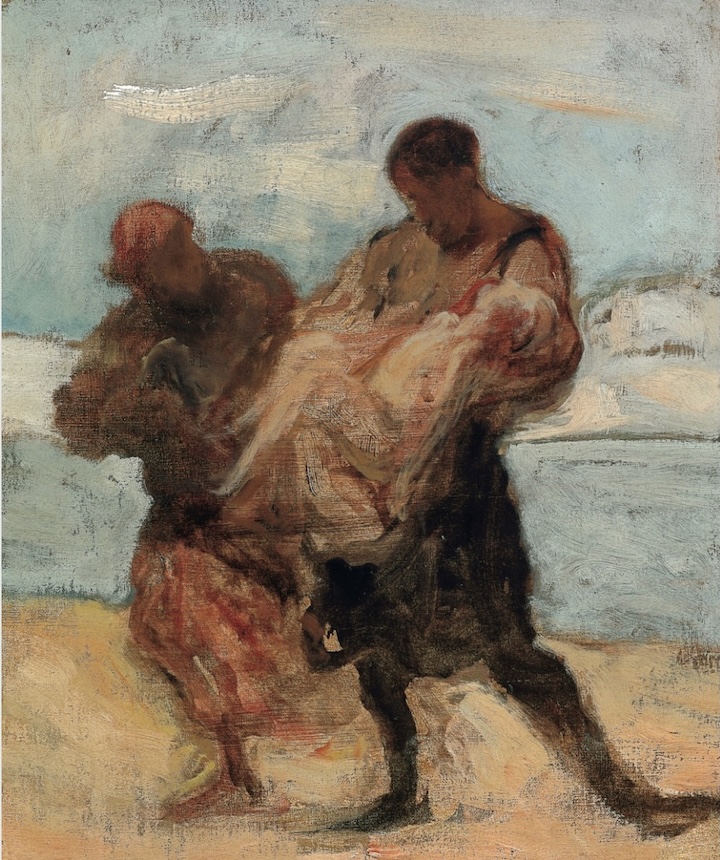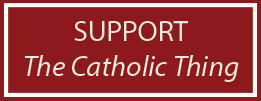Are you certain God exists? Are you certain He doesn’t? Who has the burden of proof here? Should believers have to prove that God exists? Or should atheists have to prove that He doesn’t? There are plenty of people who respond by pronouncing themselves “agnostic”: “I just don’t know.”
Fair enough – unless the question of God’s existence is as pressing and relevant as whether the volcano above my house will explode in the next 24 hours. Since I’m not a volcanologist, I could legitimately say, “I just don’t know.” But it’s not as though the upshot of the debate is unimportant to my life and flourishing. To proclaim myself “agnostic” – and then go back inside my house – is not a “neutral” response. With my actions, I show that I am siding with those who claim that this isn’t a relevant concern.
I’ve often thought that the real goal of Pascal’s famous “wager” was to get his Oh-so-sophisticated fellow countrymen to face up to this existential question about the Gospel message: What if you’ve already, with your life, wagered everything on this question? If all your money (or your entire life) depended on the answer to a certain question, would you really choose to remain “agnostic” about it?
Can I be certain that Jesus is God incarnate and that His sacrificial death brings our salvation? Perhaps not. So now what?
Well, what if we don’t pose the question this way, searching for certainty?
This search for certainty is a tendency introduced into the consciousness of modernity by René Descartes, who believed that to say “I know” meant I had to be certain – as certain as I am that 2 + 2 = 4. A professor of mine used to say that this was the sort of error that, in Aristotle’s school, would have gotten your knuckles rapped with a ruler. “No, Descartes, no! You can’t expect the same degree of certainty in every subject matter!”
Can you be certain about God, Jesus, and all the rest? Perhaps not. But consider some other questions about which you can’t be certain. Does your mother love you? Can you be certain that she does? She might be an evil genius just fooling you so she can manipulate you later in life.
Well, it’s possible, I suppose, but what could she possibly hope to gain that would justify all the effort and sacrifice she is putting in now? And how could she be certain all her effort would pay off? It’s possible, if not altogether reasonable or likely. But I can’t be certain.

Here’s another question people struggle with: Should I marry this person? Can I be certain that it will “work out”? It’s impossible to be certain about this. It may be possible to make better or worse judgments, but anyone who demands certainty will never marry. Those who think of love and marriage as a choice they make, rather than as a situation they can be certain of, usually do much better in the long run.
I once had a professor who proposed this definition of “belief”: “acting as if it were true.” I don’t think this is an apt description of faith, but it provokes some interesting considerations. If I see an old rickety bridge and walk across it, I believe it will hold me. How do you know I believe it? I am walking on it. I may do so tentatively, with some doubts, but I am doing it.
A man is drowning, and I see an old boat. If I jump in and row out to the man, I show that believe it will hold me. I act as if it is true. I believe it – believe it so firmly that I am willing to put my life on the line based on that belief.
In Man’s Search for Meaning, Viktor Frankl says about his time in Auschwitz, “We needed to stop asking about the meaning of life, and instead to think of ourselves as those who were being questioned by life – daily and hourly. Our answer must consist, not in talk and meditation, but in right action and in right conduct.”
What if, instead of certainty about the idea of God, we thought of ourselves as being “questioned by life,” and the answer to that question was one we had to give with our lives. What if instead of waiting for the feeling of certainty, we just said, “I choose to live as though a life of selfless love has meaning.”
“Agnostics” and atheists who say they believe we live in an empty, meaningless universe show, when they act with selfless love and teach their children to do the same, that they don’t really believe what they say they believe. They believe what Christians believe – about life and the world. The difference is that Christians have reasons for the hope that is within them. And they can put a name to that hope.
Can I be certain about the God of love? Are you kidding? There are days when “the world is too much with me,” and I’m not sure that anything has any value, especially when I contemplate the darkness of the world and in my own heart.
Though I can’t be certain, I could choose to try to live as if the God of Love exists and created a universe in which incarnate Love is the key to human flourishing. I prefer to live this way because, in my experience, it is what makes the most sense. You can call that “irrational faith” if you want.
And yes, I might be like a guy in a rickety boat that I’m not sure can hold me out on the water rowing toward the drowning man. But I would prefer to be that guy than the one who sits on the shore asking endless questions about the seaworthiness of the boat. That guy would have made his choice. And I’ve made mine. But neither of us is neutral.

















